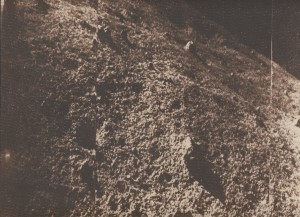Luna 15: Russia’s race for the rocks
On July 17, 1969, even as Apollo 11 headed for the moon, there was still a chance the Soviet space program could salvage a modicum of pride. The race to beat the Americans to a manned landing had long been lost, even before the devastating explosion of the N1 moon rocket—the Soviet answer to NASA’s…

On July 17, 1969, even as Apollo 11 headed for the moon, there was still a chance the Soviet space program could salvage a modicum of pride. The race to beat the Americans to a manned landing had long been lost, even before the devastating explosion of the N1 moon rocket—the Soviet answer to NASA's Saturn V—just 12 days before Armstrong, Aldrin and Collins lifted off.
Russia's backup plan, put into motion after NASA scored a decisive blow by circling the moon with Apollo 8 in December 1968, was to send a robotic lander to collect lunar rocks and bring them back to Earth. Luna 16 actually pulled off that complex mission a year later. But during the unlucky summer of 1969, the Russians couldn't do anything right.
Luna 15 left Earth on July 13, three days before Apollo 11, and entered lunar orbit on July 17. According to Asif Siddiqi's history of the Soviet space program, Challenge to Apollo, the Soviets had not anticipated the ruggedness of the lunar surface, and Luna 15's altimeter started returning erratic readings for the planned landing area. Instead of setting their craft down just two hours after Apollo 11, controllers lost valuable time analyzing data and adjusting its orbit. On July 21, with Armstrong and Aldrin safely inside the Eagle lander following their moonwalk, a State Commission finally made the call to land Luna 15 (yes, that's how things were decided in the Soviet space program—maybe the reason they lost the race). Four minutes into the descent from orbit, the spacecraft smashed into the side of a mountain.
The Jodrell Bank observatory in England had been eavesdropping on the Luna 15 transmissions, and heard the signals abruptly stop (you can listen to the 40-year-old commentary here).
All in all, a terrible month for the Soviet space program. And, as Siddiqi notes:
There was one small irony to the whole mission. Even if there had not been a critical eighteen-hour delay in attempting a landing, and even if Luna 15 had landed, collected a soil sample, and safely returned to Earth, its small return capsule would have touched down on Soviet territory two hours and four minutes after the splashdown of Apollo 11. The race had, in fact, been over before it had begun.